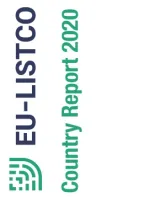Libya Country Report

EU-LISTCO Country Report (2020)
This study on Libya is one of a series of reports prepared within the framework of the EULISTCO project, funded under the EU’s Horizon 2020 programme. EU-LISTCO investigates challenges posed to European foreign policy by identifying risks connected to areas of limited statehood and contested order. Through an analysis of the EU Global Strategy and Europe’s foreign policy instruments, the project assesses how the preparedness of the EU and its member states can be strengthened to better anticipate, prevent and respond to threats of governance breakdown and to foster resilience in Europe’s neighbourhood.2 Libya is a special case within the EU-LISTCO project. It is in the western region of North Africa, bordered by the Mediterranean Sea to the north, Algeria and Tunisia to the west, Chad and Niger to the south, Sudan to the south-east and Egypt to the east. The security and stability of Libya is fundamental for the economic and political future of Europe, particularly in relation to migration, radicalisation and political economy. Because of the NATO-led intervention that brought about the collapse of the Libyan Arab al-Jamahiriyah, the country has now entered an interrelated social, economic and political crisis, and violence has been simmering for the past eight years. While the collapse of the previous government has been beneficial for some, numerous armed political actors now control the Libyan territory, supported and funded by external powers that often have contradictory political agendas. It is important to point out that while the role of EU member states and institutions is discussed Working Package 5 will focus more strictly on the role that these states can play in Libya and the instruments available to them.